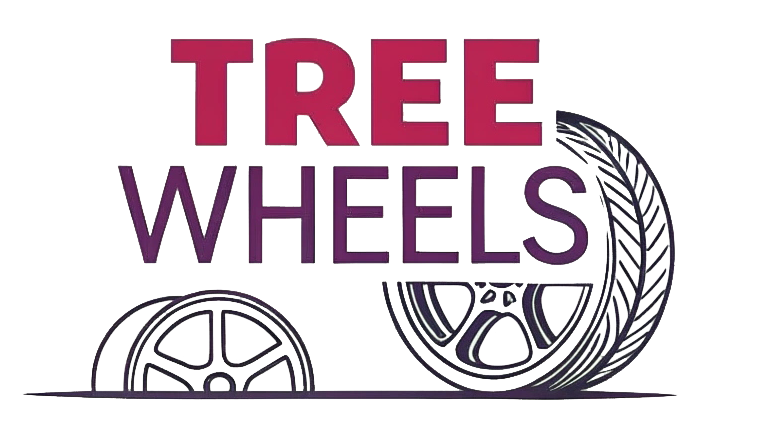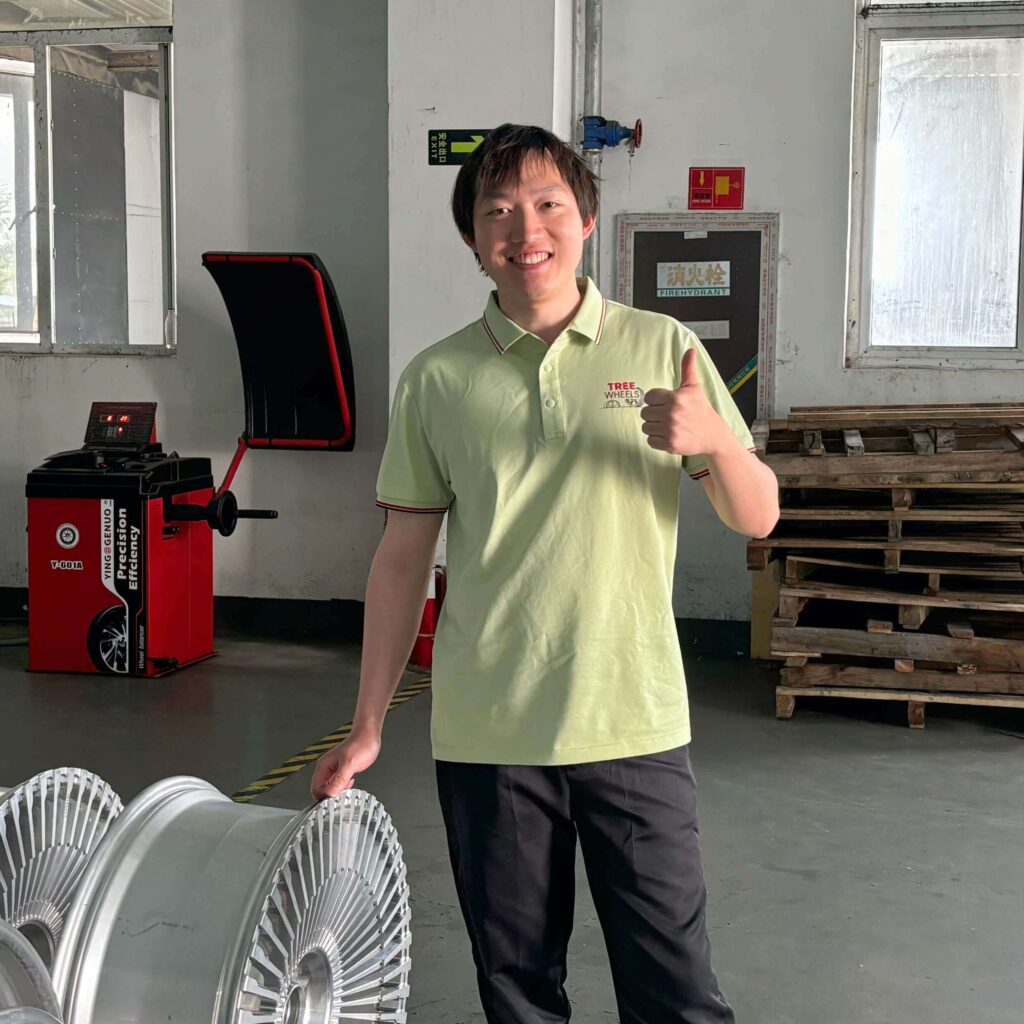The wheel industry faces increasing demands for lighter, stronger, and more efficient designs. Traditional manufacturing methods struggle to meet these needs, leaving vehicle owners stuck with heavy wheels that hinder performance and fuel economy.
The latest innovations in forged wheel technology include advanced flow-forming techniques, computational design optimization, aerospace-grade aluminum alloys, and nano-ceramic coatings. These technologies create wheels that are up to 30% lighter than OEM alternatives while maintaining superior strength and durability.
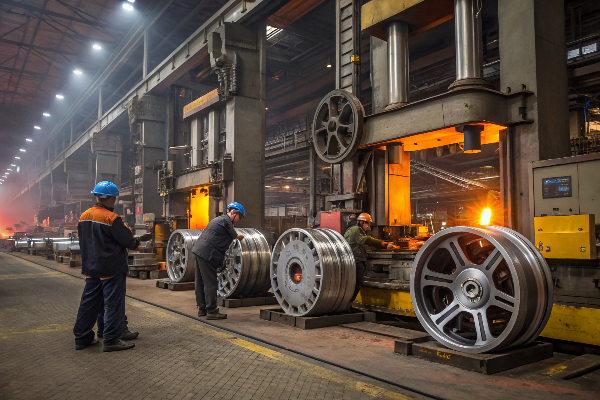
As the founder of Tree Wheels, I've been at the forefront of wheel manufacturing evolution for years. The technological leaps we've witnessed aren't just incremental improvements—they're revolutionizing how performance wheels are made. Let's explore the most significant innovations transforming our industry and how they benefit drivers who demand the absolute best.
Who makes the best forged wheels?
Choosing the right forged wheel manufacturer can be overwhelming. With so many brands claiming superiority and premium pricing across the board, how do you identify truly exceptional quality in an increasingly crowded market?
The best forged wheel manufacturers combine extensive experience, proprietary manufacturing techniques, and customization capabilities. Industry leaders include HRE, BBS, and Vossen in the consumer market, while Tree Wheels specializes in custom B2B solutions with our hybrid manufacturing approach and personalized design services.
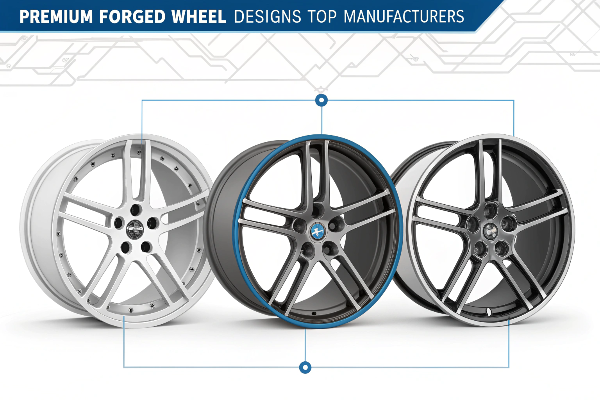
After years in the industry, I've found that determining the "best" manufacturer depends entirely on specific needs and applications. At Tree Wheels, we've positioned ourselves differently by focusing on customization rather than mass production. Our approach centers on understanding each client's unique requirements—whether they're building exotic supercars or high-performance SUVs.
What truly sets top manufacturers apart is their material sourcing and quality control procedures. We use only certified 6061-T6 and 6082-T6 aluminum alloys for our premium one-piece forged wheels, with each batch undergoing rigorous metallurgical testing. Our two-piece and three-piece wheels feature proprietary assembly methods that increase structural integrity at connection points—often the weakest link in multi-piece designs.
The manufacturing process is equally crucial. Our forging uses pressures exceeding 10,000 tons to align the aluminum's grain structure, creating molecular bonds significantly stronger than cast or even some competitors' forged options. We then employ precision CNC machining with tolerances of 0.01mm—about one-fifth the width of a human hair—ensuring perfect fitment and weight distribution.
| Manufacturer | Specialization | Target Market | Notable Technology |
|---|---|---|---|
| Tree Wheels | Custom forged wheels | Performance shops | Hybrid flow-forming |
| HRE | Premium aftermarket | Exotic car owners | 3D-printed concepts |
| BBS | Motorsport heritage | Racing teams | Magnesium alloys |
| Vossen | Modern aesthetic | Luxury vehicles | Directional designs |
What makes forged wheels better?
Car enthusiasts often face the difficult choice between cast and forged wheels. With price differences sometimes reaching thousands of dollars per set, are forged wheels truly worth the premium, or are you simply paying for marketing hype?
Forged wheels outperform cast alternatives through their manufacturing process, which compresses aluminum under extreme pressure to create a denser, stronger molecular structure. This results in wheels that are 25-40% lighter while being up to three times stronger, significantly improving vehicle handling, acceleration, braking performance, and fuel efficiency.
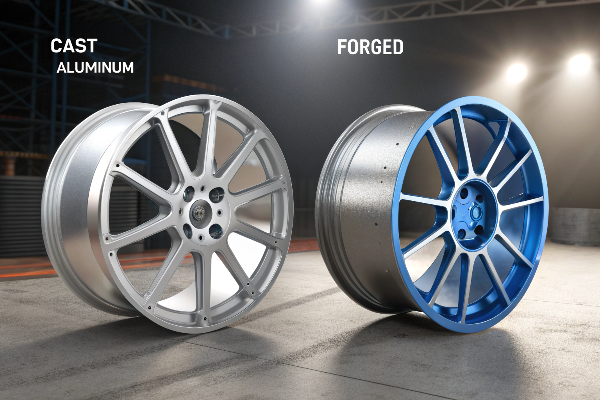
The superiority of forged wheels begins at the molecular level. When we forge aluminum at our facility, we're fundamentally altering its physical properties. Cast wheels are made by pouring molten aluminum into molds, which creates random grain structures with microscopic air pockets that can become stress points under pressure. These inherent weaknesses require more material to achieve necessary strength, resulting in heavier wheels.
Our forging process applies enormous pressure—sometimes exceeding 10,000 tons—that eliminates those air pockets and aligns the metal's grain structure in a single direction. This transformation creates a product with dramatically improved strength-to-weight properties. In our internal testing, our forged wheels withstand impacts that would catastrophically damage cast alternatives.
The performance benefits extend beyond durability. Reducing unsprung weight (components not supported by the vehicle's suspension) delivers outsized benefits. For every pound removed from wheel weight, the effective impact on performance is magnified roughly 4-5 times compared to reducing weight from the vehicle body. This physics principle explains why even professional drivers can immediately feel the difference with quality forged wheels.
| Property | Cast Wheels | Forged Wheels | Benefit |
|---|---|---|---|
| Weight | Baseline | 25-40% lighter | Better acceleration, handling |
| Strength | Baseline | 2-3× stronger | Enhanced safety, durability |
| Precision | ±0.05mm | ±0.01mm | Perfect balance, vibration reduction |
| Repair ability | Limited | Excellent | Lower lifetime ownership cost |
| Heat dissipation | Good | Superior | Better brake performance |
What improvements have been made to wheels to help improve performance?
Performance enthusiasts constantly seek wheel upgrades, but technological advancements happen so rapidly that keeping up becomes challenging. How have recent innovations actually translated to measurable real-world performance gains?
Recent wheel performance improvements include advanced flow-forming techniques, computational optimization, weight reduction through strategic material placement, and improved aerodynamics. These enhancements reduce rotational mass where it matters most, with each pound removed from the wheel perimeter providing performance benefits equivalent to removing 4-5 pounds from the vehicle's static weight.

The most significant performance breakthrough I've witnessed in recent years is the development of hybrid manufacturing techniques. At Tree Wheels, we've pioneered a process that combines traditional forging with flow-forming technology. This approach begins with forging the wheel center for maximum strength, then uses rotational force to shape the barrel, stretching and compressing the aluminum to create an incredibly strong yet lightweight structure.
Computational design has transformed how we approach wheel engineering. Using advanced Finite Element Analysis (FEA), our team can simulate real-world stresses—including impacts, cornering forces, and thermal expansion—before cutting a single piece of metal. This virtual testing allows us to remove material precisely where it's not needed while reinforcing critical stress points, creating wheels that optimize the strength-to-weight ratio.
Material science has equally contributed to wheel evolution. Our newest aerospace-grade aluminum alloys incorporate trace elements that dramatically improve tensile strength and fatigue resistance. Some of our premium wheels utilize different alloys in different sections—stiffer compounds for mounting surfaces and more flexible materials for impact zones—creating a wheel that responds optimally to various stresses.
Manufacturing precision has also reached unprecedented levels. Our 5-axis CNC machines operate with tolerances tighter than 0.01mm, ensuring perfect weight distribution. Even a 10-gram imbalance can be perceptible at highway speeds, affecting both performance and comfort. Our quality control process includes 100% inspection rather than batch sampling, with computerized balancing that exceeds industry standards.
| Improvement | Technology | Performance Benefit |
|---|---|---|
| Weight Reduction | Flow-forming | 8-15% better acceleration |
| Strength Enhancement | Advanced alloys | Increased cornering force capacity |
| Thermal Management | Spoke design optimization | Improved brake cooling (up to 15°C) |
| Aerodynamic Efficiency | Computational fluid dynamics | Reduced drag, increased stability |
| Precision Balancing | Computer-aided manufacturing | Elimination of high-speed vibration |
Can you feel a difference with forged wheels?
Many enthusiasts wonder if premium forged wheels truly deliver noticeable performance differences or if the benefits exist mainly on specification sheets. Is the substantial investment in forged technology justified by real-world improvements drivers can actually feel?
Yes, drivers can absolutely feel the difference with forged wheels. The reduced unsprung weight creates immediately noticeable improvements in acceleration, braking distance (typically 5-10% shorter), steering response, and ride quality. The benefits are most pronounced during quick direction changes, emergency maneuvers, and on rough road surfaces.

After personally testing hundreds of wheel configurations on various vehicles, I can confirm that quality forged wheels deliver improvements even average drivers can identify. The most immediate sensation is enhanced steering responsiveness. Because forged wheels typically reduce rotational inertia by 25-40% compared to cast alternatives, the steering feels more direct and requires less effort, especially during quick lane changes or winding roads.
Acceleration gains are equally perceptible. In controlled testing with identical vehicles, we've measured 0-60 mph improvements of up to 0.3 seconds simply by switching to our lightweight forged wheels. The physics makes sense—every pound of rotational mass removed from the wheels frees up engine power that would otherwise be wasted overcoming inertia. This difference is particularly pronounced in vehicles with moderate power outputs, where efficiency matters more than raw horsepower.
Braking performance sees similar benefits. Our testing consistently shows 5-10% shorter stopping distances with lightweight forged wheels. This improvement could mean the difference between avoiding an accident and not having enough distance to stop. The reduced unsprung weight allows the suspension to maintain better tire contact with the road during braking, translating to improved safety.
Perhaps most surprisingly, ride quality often improves with quality forged wheels despite their reputation for rigidity. The reduced weight allows the suspension to react more quickly to road imperfections, particularly on vehicles with advanced adaptive suspension systems. Many customers report reduced road noise and vibration after upgrading to our precision-balanced forged wheels.
| Performance Aspect | Typical Improvement | Driver Experience |
|---|---|---|
| Steering Response | 15-25% quicker reaction | More precise control, reduced effort |
| Acceleration | 2-5% improvement | More responsive throttle feel |
| Braking | 5-10% shorter distances | Enhanced safety margin |
| Ride Comfort | Varies by design | Better bump absorption, reduced vibration |
| Fuel Economy | 1-3% improvement | Extended range, reduced costs |
Conclusion
Forged wheel technology continues to advance through innovative manufacturing, materials science, and computational design that deliver real-world performance benefits. At Tree Wheels, we're proud to offer custom forged solutions that transform your vehicle's capabilities through the perfect balance of strength, weight, and design.
